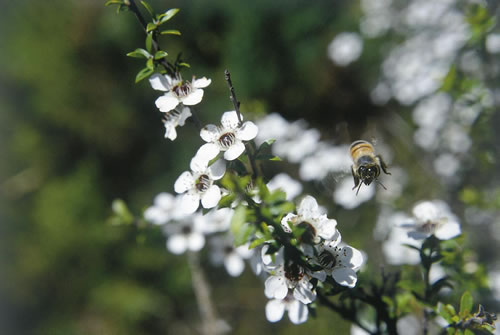Hayfever can be one of the most annoying conditions that you can suffer during the summer, leading to constant sneezing, a swollen nose and throat, and running eyes. Hayfever results from the amount of pollen in the air, which can cause irritation when inhaled. Not everyone suffers from hayfever, and allergic reactions may vary within individual people. Some that suffer hayfever one year, may not suffer as badly the next. Often this is as the result of a changing pollen count in the air, which can be checked through Met Office forecasts. Proximity to certain plants or trees can also trigger serious attacks in sufferers, which can result in the painful swelling of the throat and eyes.

In terms of basic treatments for hayfever, the most common are antihistamines and corticosteroids. In terms of antihistamines, the treatment helps to reduce inflammation caused by excessive sneezing, and is commonly used to reduce complications and irritation in the throat and nasal passages. Corticosteroids work in a similar way, often through a nasal spray that helps to lower inflammation. Immunotherapy is also sometimes used as a treatment, which involves exposing hayfever sufferers to small doses of pollen to try to improve their immune systems for future attacks.
Honey Benefits
However, there are some natural treatments that can help to fight the effect of hayfever. Among the most successful and widely used is natural honey, which can be taken daily as a spoonful. Honey works as an antibacterial agent and as an anti allergen. It can also work as a way of exposing your body to small doses of pollen to boost your immune system. The sugar is sugar similarly helps to kill bacteria, and helps to soothe sore throats when used as a regular supplement. Raw and local honey tends to be best for its strength, and for helping to immunise the body to area-specific pollen counts.
What is Manuka Honey?
Another solution is to use Manuka Honey, a stronger form of honey that contains active properties, or a Unique Manuka Factor. This type of honey is produced by bees that extract pollen from special trees and bushes in New Zealand and Australia. The nectar tends to be thicker, and contains rare qualities that help to boost its antibacterial properties. Honeys bearing a Unique Manuka Factor label fall within this category.
How It Can Help
Like other types of honey, Manuka Honey helps fight hayfever through its antibacterial properties, which can help to kill bacteria in the throat, and alleviate soreness. It also works as a desensitising agent, and can help with gastrointestinal problems caused by general poor health. Manuka Honey’s antiallergenic properties similarly contribute to boosting your immune system, and when taken regularly, has the potential to strengthen your body’s natural defenses from the effects of hayfever. The active ingredients and high sugar content of Manuka Honey, ingested in moderate doses, also restricts bacteria formation through glucose oxidase. In this way, Manuka Honey can both alleviate irritation, while also being used to reduce swellings and soreness in the nose and throat.
Author Bio: Lisa is a health blogger interested in the nutritional and healing properties of honey. She recommends Comvita Manuka honey for improving health and vitality.
Cure Hayfever By Using Honey

